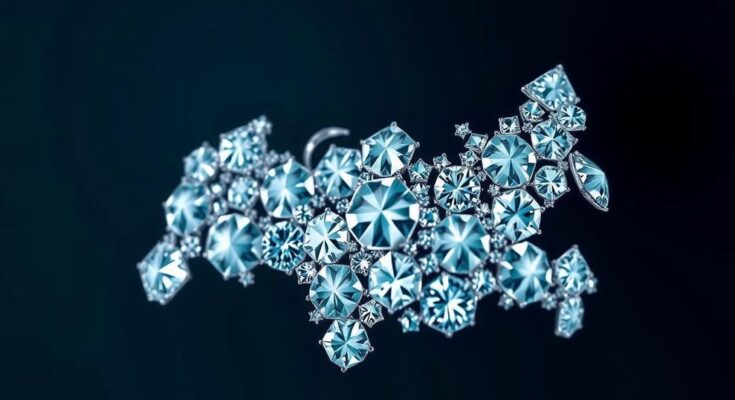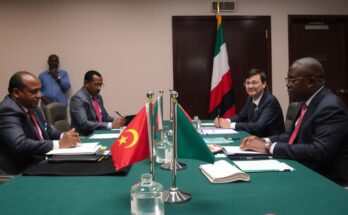The article discusses recent efforts to exclude Russian diamonds from Western markets, highlighting cooperation between Botswana and Angola with the EU and G7 in response to sanctions imposed against Russia. The effective implementation of traceability systems is crucial to prevent Russian diamonds from circumventing these bans, reflecting changes in international trade influenced by geopolitical factors.
Recent developments have significantly bolstered efforts to exclude Russian diamonds from Western markets, particularly as major competitors of Moscow, such as Botswana and Angola, are moving towards enhanced collaboration with the European Union and the Group of Seven (G7) nations. The G7 and the EU imposed sanctions on Russian diamonds earlier this year, aimed at diminishing Russia’s revenue amid its ongoing conflict with Ukraine. However, the effectiveness of these sanctions necessitated the establishment of a robust framework for transparency and traceability in the diamond supply chain to mitigate illegal trading practices that could undermine these efforts.
Previously, Russia stood as the leading diamond producer globally, accounting for approximately one-third of the diamonds traded through Antwerp, Belgium. In 2021, the value of Russian diamond imports into Belgium reached €1.8 billion. However, this figure declined to €1.4 billion in the following year, coinciding with the commencement of Russia’s full-scale military invasion of Ukraine. This downward trend reflects both the impact of sanctions and the evolving dynamics of the international diamond trade, influenced by the critical decisions of countries like Botswana and Angola.
The geopolitical landscape surrounding the diamond trade has shifted notably due to Russia’s actions in Ukraine and the subsequent sanctions imposed by Western nations. Diamonds play a pivotal role in Russia’s economy, thus, restricting their trade is a strategic measure aimed at limiting resources available to the Russian government. Botswana and Angola, two significant diamond-producing nations, are now aligning themselves more closely with Western entities to fortify their market positions and ensure compliance with international regulations. This shift also demonstrates the broader implications of the conflict on global trade relations and economic partnerships.
In conclusion, the collaborative steps taken by Botswana and Angola illustrate a strategic alignment with Western powers, facilitating the enforcement of sanctions against Russian diamonds. As the G7 and the EU continue to fortify their restrictions, the establishment of strong traceability systems becomes critical for maintaining the integrity of diamond trading. Thus, the actions of these African nations could set a precedent for future trade dynamics within this essential global industry.
Original Source: www.politico.eu




